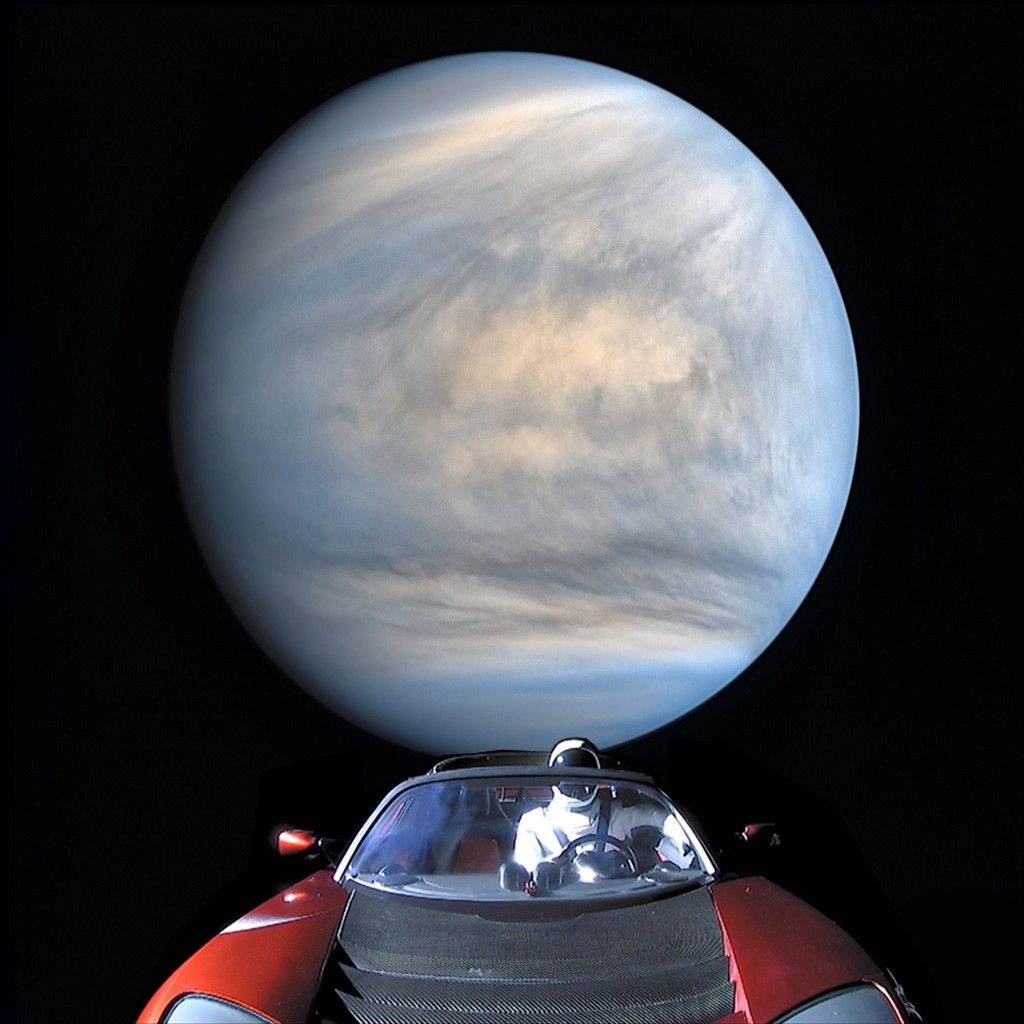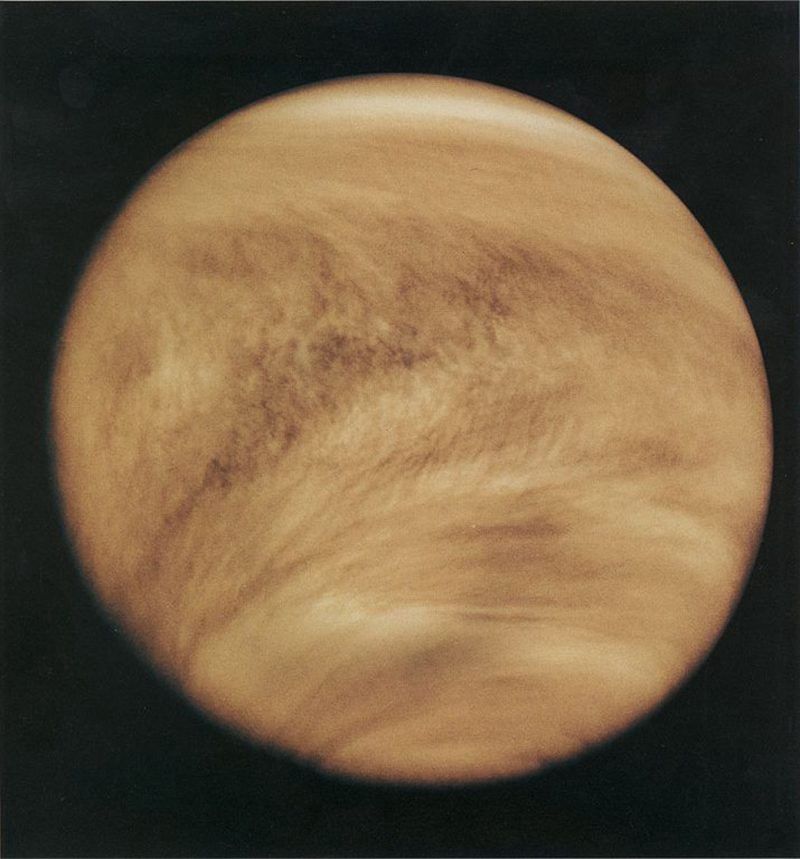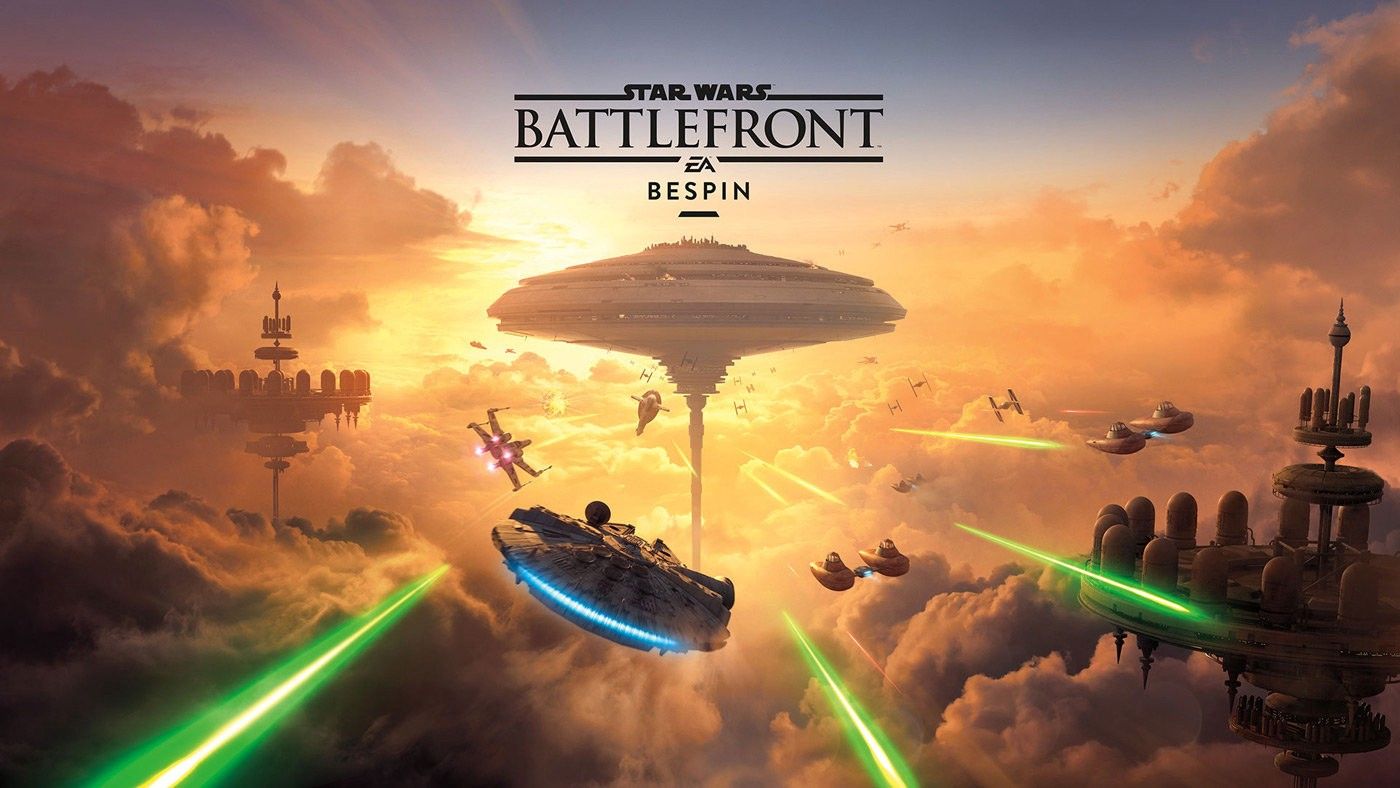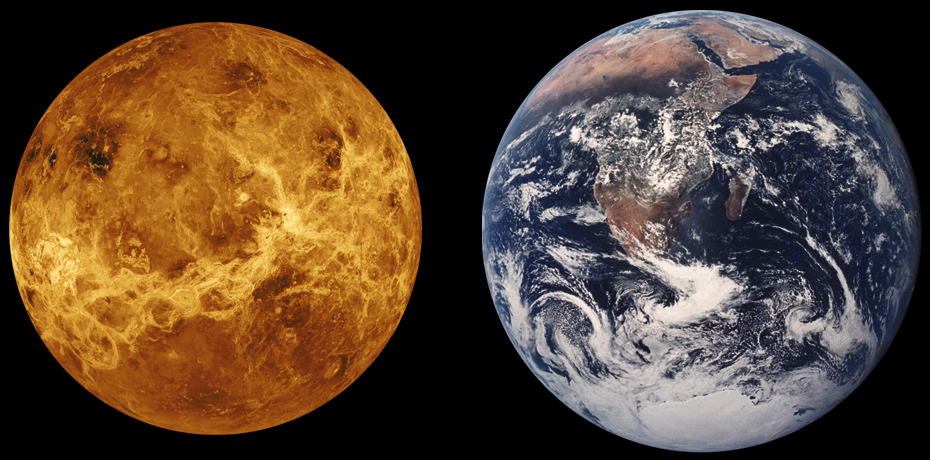Forget Mars. We Should Colonize Venus First
Venus is our galactic AirBnB

Forget Mars. We should colonize Venus first. While the surface is death, the clouds of Venus are the most habitable place in the solar system, besides Earth. We just need to use an air mattress.
We would like to study a location in the solar system with atmospheric pressure near one bar; temperature in the range where water is liquid, 0 to 100 C; abundant solar energy; and with the primary materials required for life, carbon, oxygen, nitrogen, and hydrogen, present.
Other than the surface of the Earth, the only other place where these conditions exist is the atmosphere of Venus, at an altitude of about fifty to sixty kilometers above the surface. (Geoffrey A. Landis, NASA, 2003)
The reason we’re not colonizing Venus is not any failure of the planet. It’s a failure of imagination.
Rethinking Surface Level
When we think planet, we think solid ground. We think surface, and the surface of Venus is completely inhabitable. This misconception is why we’re not going there.
However, just imagine Venus as an ocean planet, an ocean of CO2. If we were exploring an ocean planet we wouldn’t talk about conditions at the bottom; by this measure, the Earth itself is uninhabitable. We’d talk about the surface of the ocean. That’s how we need to think of Venus.
On Venus, a pressurized balloon (or city) of nitrogen and oxygen would float 50km above the surface. For our purposes, this is the surface. Here the gravity and pressure would be almost identical to Earth. Float another 5km up and temperatures are the same, around 27 °C. This is an extremely habitable zone. More habitable than the Moon, Mars, Europa or any other destination we’re thinking about. This is almost Earth. It’s the best possible place to explore. Also the closest.
Venus is also, relatively speaking, incredibly rich in the chemical ingredients for life, even agriculture. Unlike Mars which has a thin and barren atmosphere, Venus contains carbon, oxygen, nitrogen, and hydrogen. Yes, the rain is sulfuric acid, but that’s also a resource. It’s the same thing we use for batteries.
Most intriguingly, the clouds of Venus may already contain life.
Life On Venus

The dark patches in Venus’s atmosphere may, in fact, be created by cloud-borne bacteria. As plankton swims in our seas, unknown microbiology may be swimming in Venusian clouds. The changes in Venus’s albedo (brightness) are as yet unexplained, and life is a highly plausible explanation.
“The patches could be something akin to the algae blooms that occur routinely in the lakes and oceans of Earth,” the researchers said. (Sanjay S. Limaye et al., via Sci News)
This is incredibly exciting and should be explored in-person.
The Potential For Human Life

Like Lando Calrissian’s Cloud City in Star Wars, it is entirely possible to have human habitation in the clouds of Venus. Wherever we go (Mars or Europa) we have to live in a container. On Venus that our home would just happen to float.
Pressure
And it doesn’t even need to be pressurized, at 50km the pressure is 1 atm (same as Earth). At a cooler 55km, it’s still a manageable 0.5 atm, roughly equivalent to Mount Everest base camp, which is 5km up from Earth. Mars is less than 1% of the pressure of Earth, a level at which your blood would literally boil. If a Venusian habitat was punctured, air would just slowly leak out. On Mars, one puncture and your house would rapidly decompress, ie explode.
Gravity
Venus also has gravity which is 90% of Earth’s compared to 38% for Mars. The gravity in the clouds is functionally the same as at the surface. Hence you’d feel the same in your cloud house, just a bit lighter. More importantly, you wouldn’t lose bone mass or require constant exercise to keep your body from atrophying.
Radiation
Venus, unlike Mars, also has a roof. By roof, I mean protection from the solar elements. Even at 55km up, there’s enough atmosphere to shield from a lot of radiation. In contrast, the thin Martian atmosphere affords little to no protection at all. A year on Mars is like getting 9,600 chest x-rays, or 48 CAT scans. This isn’t good for our bodies, and everything would need to be shielded. The result could be that we end up going to Mars, but living underground. What’s the point when you could be on Venus, living in the clouds?
Resources
Venus also has resources. Mars has rocks, but Venus has ample chemical elements in the clouds. Martian soil is irradiated, deeply toxic and prone to planet-wide dust-storms that blot out the sun. In the Martian clouds, however, we could harness naturally occurring water, sunlight, nitrogen and other elements to create agriculture. Humans cannot exist without other life, and the Venusian clouds are a place that can support life in general. Maybe not chickens, but certainly some form of munchable algae.
Energy
Then there’s energy. While Mars has the solar power of a cloudy day on Earth, you’ll still be using much of the energy to regulate temperature and pressure, stuff you get above Venus for free. On Venus, you get more solar power and plentiful heat (and energy) from below the clouds. The sulfuric acid rain can also be combined with lead to make batteries.
Distance
Finally, Venus is just closer. Its orbit is the closest to ours so we have a good launch window every 19 months, and the trip will take less than 5. Mars has a good launch window every 25 months, and the trip would take over 8. Venus is effectively a full human baby closer (6 months saved on waiting time, and 3 months saved traveling). This has significant benefits in terms of fuel, resources, and sanity.

Ergo
Therefore, Venus is simply a much better candidate for colonization than Mars. As NASA scientist Geoffrey A. Landis says:
Venus has great advantages over conventional space colony concepts, in that the gravity is provided by the planet, radiation protection is provided by the atmosphere, and no pressurization is needed (the habitats can float at or near the one-bar level). In addition, the atmosphere contains major volatiles needed for life (carbon, hydrogen, oxygen, nitrogen, sulfur), and above the clouds the environment has an abundance of solar energy. (Landis, Terraforming Venus)
The only disadvantage is that you can’t plant a flag in Venusian soil, but if we can overcome that lack of imagination, we could be living in the clouds. Mind you, Venus is still terrible — acid rain, whipping winds, God knows what else — but it’s still the best possible destination in the solar system.
Given the hostility of space, Venus is like a galactic AirBnB. It has a good location, decent atmosphere, electricity, even a functioning kitchen. The only catch is that we have to sleep on an air mattress. But hey, that’s why they call it ‘Air’ BnB.
Further Reading
- Geoffrey A. Landis — Terraforming Venus. NASA, 2011.
- Geoffrey A. Landis — Astrobiology: The Case For Venus. NASA, 2003.
- Harold Morowitz and Carl Sagan — Life in the Clouds of Venus? Nature, 1967.
- Sanjay S. Limaye, et al. Venus’ Spectral Signatures and the Potential for Life in the Clouds. Astrobiology, 2018.